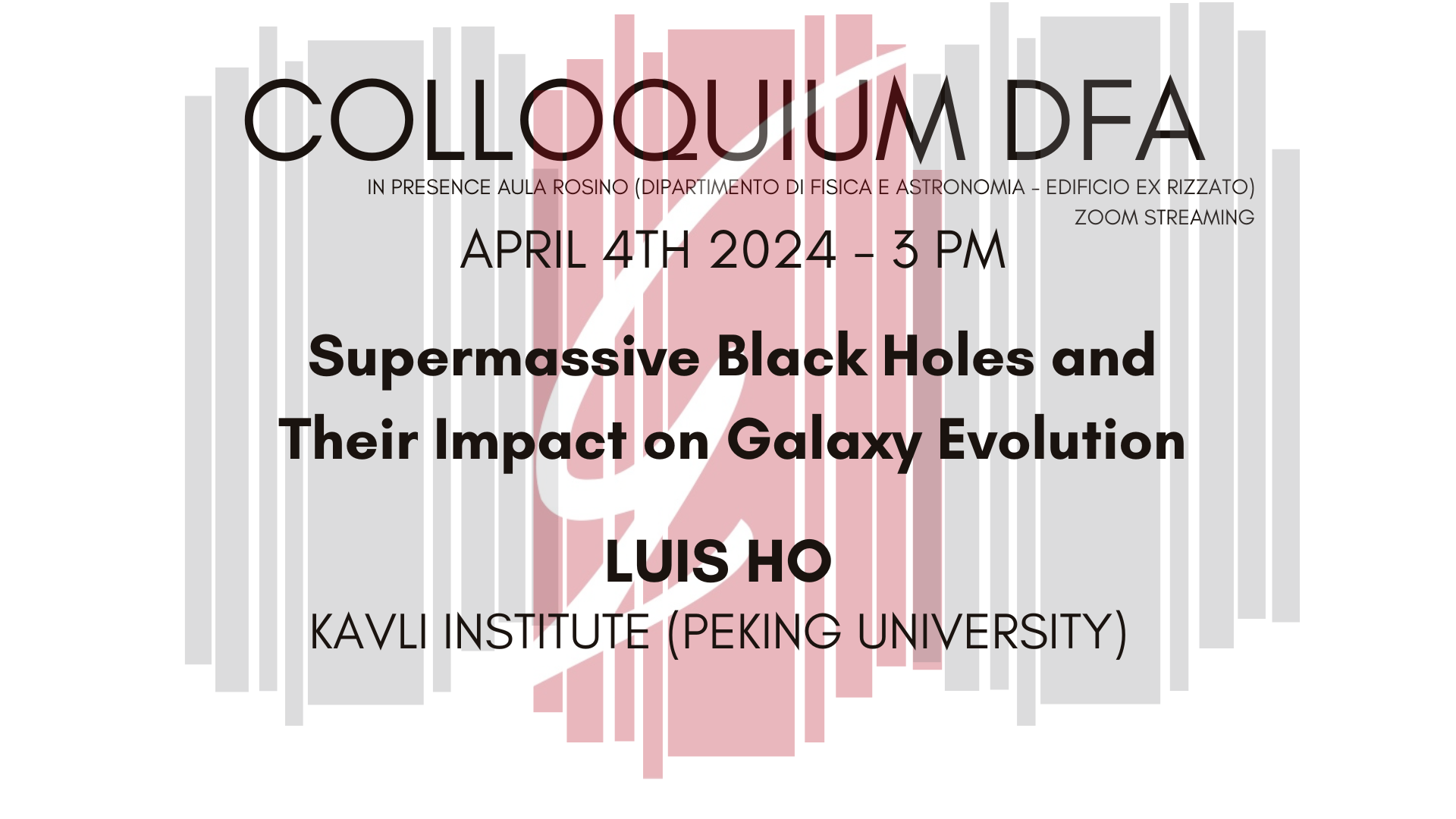Supermassive Black Holes and Their Impact on Galaxy Evolution
by
0/0-3 - Sala Rosino
Dipartimento di Fisica e Astronomia - Edificio ex-Rizzato
.png)
Speaker: Luis Ho
Affiliation: Kavli Institute for Astronomy and Astrophysics (Peking University)
Date: April 4 th, at 3 PM
Where: Aula Rosino (Dipartimento di Fisica e Astronomia - Edificio Ex Rizzato) and Zoom streaming
Abstract: The centers of all massive galaxies contain supermassive black holes weighing millions to tens of billions times the mass of the Sun. Recent observations reveal that even a significant fraction of low-mass galaxies contain intermediate-mass black holes, which give new insights into the birth of supermassive black holes and offer predictions for the next generation of gravitational wave experiments. Accretion of matter by central black holes power quasars and various types of active galactic nuclei. The energy and momentum released by accretion, in turn, may strongly influence the evolution of galaxies. I will summarize the critical observations over the past 30 years that have led to the discovery of the widespread existence of black holes in galaxies, which is among one of the most important developments in modern astrophysics.
Luis C. Ho was educated at Harvard University (1990), obtained his PhD from the University of California, Berkeley (1995), and was Staff Astronomer at the Observatories of the Carnegie Institution for Science (1998-2013). In 2014, he moved to China to become Director of the Kavli Institute for Astronomy and Astrophysics at Peking University, where he is University Chair Professor. Ho is an expert in observational astronomy, using the most forefront telescopes on the ground and in space, from radio to X-ray energies, to study the physics of active galaxies, search for supermassive black holes, and investigate their diverse relation to galaxy formation and evolution. His research has resulted in over 700 publications. He is the deputy editor of the Astrophysics Journal Letters. Ho has been actively involved in the development of astronomy throughout China and East Asia, including the planning of current and future telescopes and facilities. He is an Elected Member of the American Academy of Arts and Sciences and Elected Fellow of the American Astronomical Society.
Zoom: https://unipd.zoom.us/j/88919880596
Giulia Rodighiero
